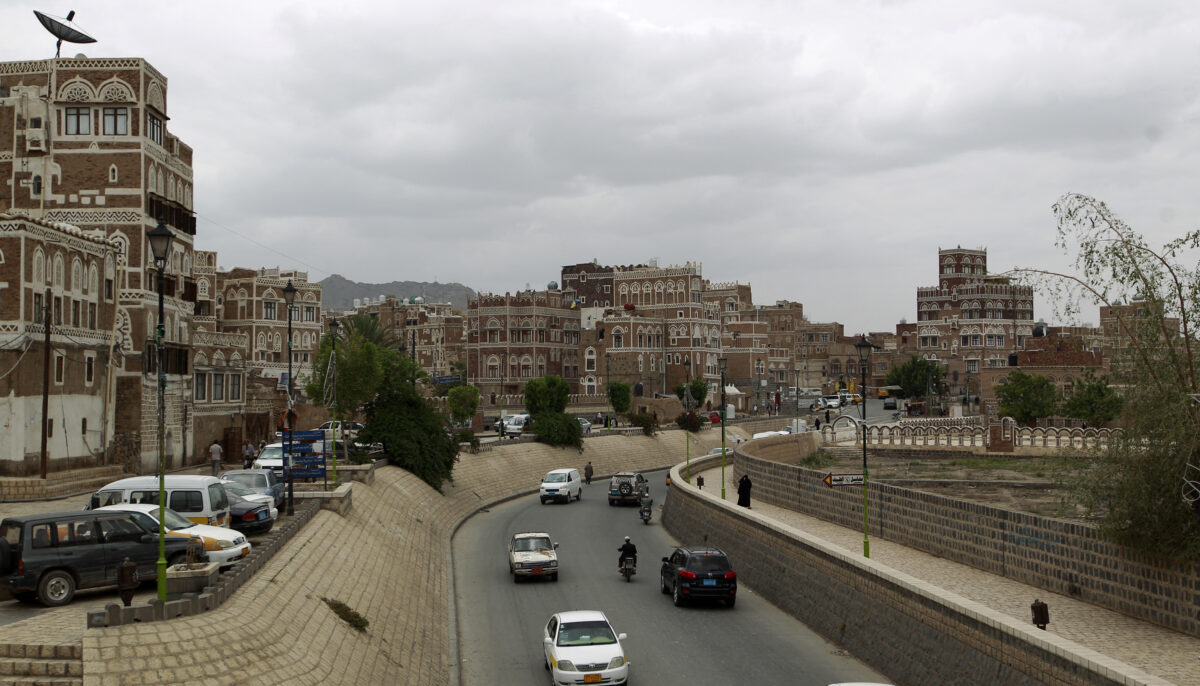On August 21, the Yemeni cabinet of the internationally recognized government signed a clandestine investment agreement in the telecom sector with an Emirati company. No specific details about the investment were revealed to the public; even the name of the company in question was never mentioned.
A few days later, the Fact Finding Committee in the Yemeni parliament revealed that the company’s name is Nx Digital Technology, a startup specializing in digital security and artificial intelligence. The committee accused the government of violating the Constitution and acting outside its provisions, committing a “serious violation and a dangerous precedent that no government has ever committed.”
The parliament’s report caused so much chaos and controversy that on September 4, Yemeni Prime Minister Maeen Abdulmalik Saeed held a press conference to address the issue. He accused the committee of basing the report on untrue allegations, referring specifically to Yemeni businessman Ahmed Al-Essi, who had previously accused the prime minister in a television interview of “selling Yemen and destroying its government institutions.”
For his part, Abdulmalik claimed the government wanted to secure communications and people’s data by signing the agreement, adding that it was a way to protect government and army leadership communications from Houthi-held telecom companies. “The Houthi militia’s control over state communication institutions and private companies has significant security risks,” according to Abdulmalik.
The prime minister justified the deal by highlighting how local telecommunications companies failed to operate their networks after they had been granted licenses and facilities to build them.
An economic engine and a vital security component
The Information and Communications Technology (ICT) sector is one of the most important sovereign sectors and the most crucial for national security. It is also an indispensable economic resource no less important than Yemen’s oil and gas sectors.
Before the coup carried out by the Houthis in late 2014, the telecommunications sector was the second largest source of wealth for the national budget (30%), with telecommunications revenues amounting to about 130 billion Yemeni Riyals (equivalent to 605 million US dollars).
In an interview with SMEX, a source in the Ministry of Communications of the internationally recognized government supported by the Saudi-led coalition, who preferred to remain anonymous, said the government and Emirati NX Technology signed a partnership agreement and did not sell the telecom sector, as promoted by some parliamentarians. He said the deal exempts Nx from operating permit costs, amounting to around 150 million dollars a year, as long as the government gets 30% of its profits.
“Each day, about eight million dollars are funneled from government-controlled provinces of the telecommunications sector to Sana’a, exploited by the Houthis to enhance their military capabilities,” the source said. He added that the agreement would allow the government to exploit this resource “to improve the economic situation in areas it controls and secure digital protection for users so that the government is the only one capable of controlling data,” he said. However, the ambiguity of the terms of the agreement raises questions about the guarantees that privacy will not be violated.
An unknown company and bold accuses
The Emirati Nx Technology was founded in 2015 as a startup company specializing in digital security and artificial intelligence, but its website does not show any actual activity inside or outside the UAE, which draws questions about its nature and direction.
In an interview with SMEX, a member of the parliamentary Fact Finding Committee, Ali Al-Mamari, stated that “the sale of Adennet was conducted secretly and quickly by the prime minister, without reference to the Yemeni parliament as stipulated by the Constitution.”
“Even when we asked for documents and details of the agreement, the government refrained from providing us with drafts of the contract, and it was submitted to the Cabinet for ratification, although it was not included in the session tasks.”
The Parliamentary Fact Finding Committee conducted research on the company to find that it owns a small apartment in one of the Abu Dhabi towers. It specializes in digital support and cyber security but has never worked on telecommunications, according to Al-Mamari. He added that “the handover of state institutions to Nx Technology raises questions about the ambiguity surrounding this deal.”
The agreement allowed the Emirati company to acquire international messaging capacities from the General Organization of Telecommunications and data transmission in Yemen, national numbering, the optical fiber network, frequency spectrum, telecommunications infrastructure, and the internet in the country. According to Al-Mamari, this allows it to monitor and spy on all users of the telecommunications network and not exclusively subscribers to the company’s services.
A long history of privacy violations
UAE telecom companies have a long history of privacy infiltration, spyware, and data control by the UAE government inside and outside the UAE. They recruit and attract telecommunications engineers and former intelligence officers in a number of countries.
In 2021, the US Department of Justice convicted three former intelligence agents of spyware and carrying out hacking operations inside the United States for the benefit of the UAE. Moreover, the leaks of the Pegasus project showed that in 2018, the UAE spied on members of the Yemeni government, former President Abdrabbuh Mansur Hadi, and former prime minister Ahmed Obaid Bin Dagher. This was done in cooperation with NSO, the Israeli developer of Pegasus, and members of the Mossad and the Israeli army.
It should be noted that the UAE finances and supports the Southern Transitional Council calling for the secession of the southern provinces, as it supported the southern Yemenis in building, forming, and financing armed groups outside the framework of the Ministries of Defense and Interior, which was expressed by telecommunications networks engineer Mohammed Al-Muhaimid in a chat via X (formerly Twitter).
“Selling government institutions and putting them at the disposal of an Emirati company is a partition agreement for the country, especially since the UAE is the first supporter of the separatists,” said Al-Muhaimid.
“Handing over Adennet, which owns an international sub-symbol within the international key for Yemen (which is +9678), to a party that supports secession is giving it permission to secede.”
The consequences of corruption and government failure
In July 2018, Yemeni President Abdrabbuh Mansur Hadi directed the establishment of Adennet to provide an alternative to the internet and prevent monopoly. Yemennet was the only service provider in the country at that time, and it was controlled by the Houthi group during the coup in late 2014.
Indeed, 100 million dollars have been allocated from the public treasury to establish Adennet, aiming to cover all areas under the authority of the Government and provide the 4G service at a time when Yemennet only provided the 3G service.
A group of engineers who preferred to remain anonymous revealed to SMEX that after five years, Adennet could not cover the city of Aden, the smallest province of the Republic, due to the mismanagement of the company and the Ministry of Communications. In 2018, the ministry brought engineers from Sana’a to train those at Adennet on how to connect the submarine cable AAE1, but the trainers were loyal to the Houthi group, and they encrypted the cable as soon as they returned to Sana’a, to remain suspended, according to the sources.
The AAE1 submarine cable is considered one of today’s most modern cables, engineer Mohammed Bayazid tells SMEX, and provides a transmission capacity of up to 40 terabits per second, pointing out that “Yemen contributed nearly 40 million dollars in 2017 to the construction of the cable.” Bayazid is one of the members of the cable’s board of directors, and it was supposed to operate this cable and introduce 5G service to the country, similar to other countries of the region.
In fact, this problem affects the population of the southern regions and areas under the recognized government’s control, representing 70% of the area of Yemen. They cannot access the internet service completely due to the continuous internet disruptions by Houthis who control Yemennet servers in those areas. The internet service in Aden is considered the worst in Yemen, although the internet cables connecting the East and West pass through the Arabian Sea.
Now, will the government commission a new internet company to improve the service, as it claims, or to further divide and distribute the data of people in Yemen?



